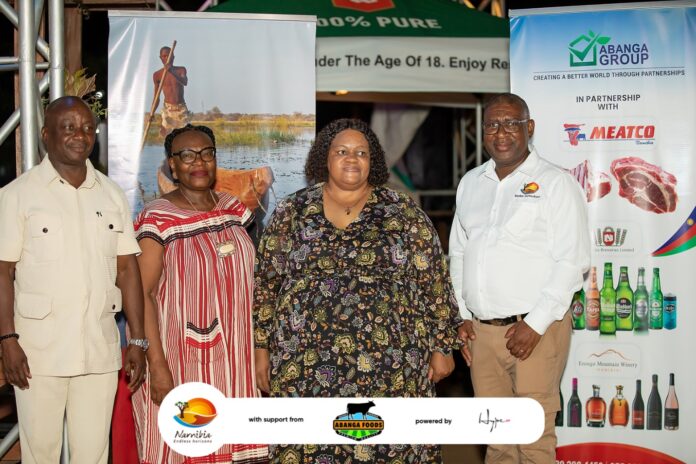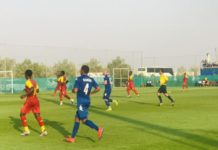
In recent months, Dubai has become the major tourist destination for Ghanaian tourists hoping to explore the world but that is likely to change after the Minister of Industrialization and Trade, Lucia Iipumbu, touted Namibia as the best Tourist destination on the African continent.
Madam Iipumbu has thus called on Ghanaians to prioritize visiting the South African country instead of Dubai and other European tourist sites.
According to her, Namibia’s tourism sector is more developed as compared to other tourist sites adding that Namibia offers the best value for money and an unforgettable experience.
She made the comments during a networking session organized by the Namibian Tourism Board at the +233 Jazz Bar and Grill in Accra to promote Namibia as the most preferred tourist destination in Africa.
“Our coming here is to cement ties to promote Namibia as the next tourism destination on the African map and indeed in the world. We are well aware that Ghanaians are traveling to Dubai, Kenya, etc. but they are missing out on a great secret kept that is hidden and untapped. That gem is Namibia. For us, tourism is one of the major economic sectors. It is also a sector that is destined to grow and expand further. We have more than enough reason to develop new emerging markets through engaging “smart partnership join marketing initiatives”.
Madam Iipumbu added that Namibia is increasingly being widely acclaimed tourist destination known for its international outlook, sophistication, safety, security and diversity.
“Namibia is safe and secure. Crime is relatively low. We have a stable and peaceful political environment. Namibia has a stable multi-party parliamentary democracy and more than thirty years after independence we still see continuous peace and harmony in our multi-cultured nation.”
“Other strongest point is our hospitality as we are generally acknowledged that our people are kind-hearted; that they reach out warmly to guests, and are friendly, respectful and of generous spirit. In short, in a world that is so much in a rush, our people have not rushed to shed their firm belief in, and staunch commitment to, a dignified universal common humanity.”
The Chief Executive Officer of the Namibian Tourism Board, Digu Naobeb, outlined several reasons why one must visit Namibia.
According to him, Namibia provides plenty of opportunities to meet locals who still live a traditional lifestyle. He added that tourists will enjoy the vast, untouched landscapes; unique cultures; and biodiversity of Namibia.
The Chief Executive Officer of Abanga Farms and Food Systems, Dr. Thomas Abanga, on the sidelines of the event said Namibia touted Namibia as the best tourist destination on the African continent. He added that there are also several business opportunities in Namibia, the visitors can take advantage of when they visit that country.
He added trade between African countries was critical if the continent was to change the distorted trade relationship that existed between African countries and the rest of the world.
Abanga Foods is the company in Ghana with the exclusive rights to import Namibian beef into the country. Namibia is renowned for its export of beef and related products, while Ghana is a major meat importer.
Brief Profile about Namibia
Namibia is officially the Republic of Namibia, is a country in Southern Africa. Its western border is the Atlantic Ocean. It shares land borders with Zambia and Angola to the north, Botswana to the east and South Africa to the south and east. Although it does not border Zimbabwe, less than 200 meters (660 feet) of the Botswanan right bank of the Zambezi River separates the two countries.
Namibia gained independence from South Africa on 21 March 1990, following the Namibian War of Independence. Its capital and largest city is Windhoek.
Namibia is a member state of the United Nations (UN), the Southern African Development Community (SADC), the African Union (AU) and the Commonwealth of Nations. The driest country in sub-Saharan Africa, Namibia has been inhabited since pre-historic times by the San, Damara and Nama people. It has a population of 2.55 million people and is a stable multi-party parliamentary democracy. Agriculture, tourism and the mining industry – including mining for gem diamonds, uranium, gold, silver and base metals – form the basis of its economy, while the manufacturing sector is comparatively small.
Source: Ghana/Starrfm.com.gh/103.5FM




